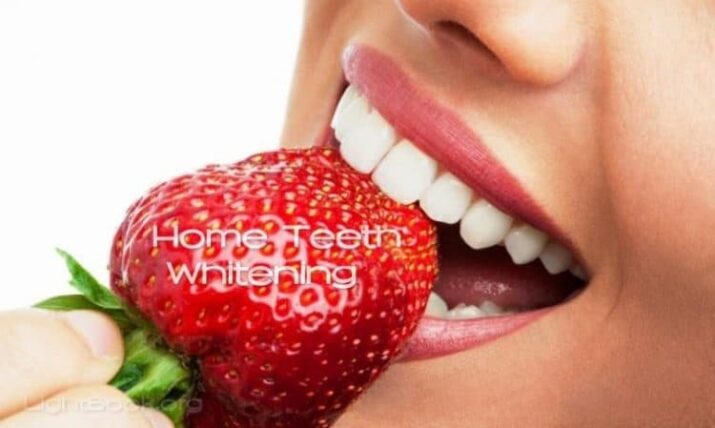Home Teeth Whitening with Natural Recipes in Simple Ways
Home Teeth Whitening with Natural Recipes in Simple Ways
Natural Ways to Whiten Your Teeth: A Holistic Approach
Greetings to all! Many of us are looking for different natural ways to whiten our teeth. How much our society needs to clean the heart and soul first before cleaning the outside and before whitening your teeth!
How much we need to clean our hearts and souls first and learn to live life in peace; to love and respect others even if we disagree with thought and faith! But the question is, when will our people rise to this level?! Let’s go back to our theme, and we’ll talk about some effective ways to benefit everyone in teeth whitening in general.

Teeth Whitening Methods
Everyone uses toothbrushes and toothpaste to clean their teeth and uses their granular paste; certainly, daily. This protects the teeth from decay, removes bacteria and smells the mouth, and makes the mouth smell fragrant all day long. But there are a lot of people wondering how to whiten my teeth and give them a brilliant, bright color.
You see a lot of people spending money in dental clinics and this gives them a lot of time, money, and effort because of the process of whitening teeth, not only in one session, but a lot of time and money. Therefore, we will present in this article several natural household products that greatly help in teeth whitening.
Natural Tooth Whitening Products
Honey
Honey is a natural sweetener that is produced by bees from the nectar of flowers. It has been used for thousands of years for its medicinal properties and is known to have numerous benefits for our health and well-being. One of the benefits of honey is that it can help improve our dental health.
The antibacterial properties of honey can help prevent the growth of bacteria that can cause tooth decay and gum disease. Additionally, honey can help reduce inflammation and soothe sore throats, making it a popular remedy for coughs and colds.
Honey also contains antioxidants, which can help protect our cells from damage caused by free radicals. Free radicals are molecules that can cause oxidative stress, which has been linked to numerous health conditions, including cancer, heart disease, and Alzheimer’s disease.
Furthermore, honey has been shown to have antibacterial and anti-inflammatory properties that can help with wound healing. When applied topically, honey can help reduce inflammation, prevent infection, and promote tissue regeneration.
It is important to note, however, that not all honey is created equal. Raw, unprocessed honey is the most beneficial, as it retains its natural enzymes and antioxidants. Processed honey, on the other hand, may have lost some of its beneficial properties due to heating and filtration.
Overall, honey is a natural ingredient with many potential health benefits, including improved dental health, antioxidant protection, and wound healing properties. However, it is important to choose high-quality, raw honey to maximize its benefits. So put a little natural honey on the toothbrush and mix it with the crazy, and this helps a lot because honey contains useful elements.
Lemon Juice
The researchers often spoke about the strength and effectiveness of this fruit because it contains useful substances and elements for humans. It is also useful in teeth whitening. Place the lemon juice, add a little salt in a bowl, mix the juice with salt, and then rinse with this natural solution for two minutes to a few minutes.
Period, because it helps a lot with teeth whitening and disinfection of bacteria. And also, you can benefit from the peel of a lemon or orange. It does not throw. The peel is useful in teeth whitening by rubbing teeth from the inside.
To use lemon juice for teeth whitening, mix it with a small amount of salt to create a paste. Apply the paste to your teeth and leave it on for a few minutes before rinsing with water. It is important not to leave the lemon juice on your teeth for too long or use it too frequently, as this can damage your teeth.
In addition to using lemon juice for teeth whitening, the peel of a lemon or orange can also be beneficial. Rubbing the inside of the peel against your teeth can help remove surface stains and freshen your breath.
Overall, while lemon juice and peel can be beneficial for teeth whitening, it is important to use them in moderation and with caution to avoid damaging your teeth. It is also important to remember that maintaining good oral hygiene practices, such as brushing and flossing regularly, is the most effective way to prevent tooth discoloration and maintain a healthy smile.

Oxygen Water
Experts advise using it weekly to wash the mouth to cleanse it. It helps to remove most of the yellow spots as a result of smoking and food and helps in whitening the teeth and perfuming the mouth. Oxygenated water, also known as oxygen water or oxygenated drinking water, is water that has been infused with oxygen gas. It is believed by some to have health benefits due to its ability to increase oxygen levels in the body and improve circulation.
While there is limited scientific evidence to support the use of oxygenated water for oral hygiene, some people believe that rinsing with oxygenated water can help whiten teeth and freshen their breath. The idea is that the oxygen in the water can help break down bacteria and remove surface stains on teeth, resulting in a brighter smile.
However, it is important to note that oxygenated water should not be used as a substitute for regular oral hygiene practices, such as brushing and flossing. These practices are essential for maintaining good oral health and preventing tooth decay and gum disease.
Additionally, it is important to choose a high-quality, reputable brand of oxygenated water to ensure that it is safe for consumption and free from contaminants. It is also important to follow the manufacturer’s instructions for use, as overuse or misuse of oxygenated water can have potential negative health effects.
In summary, while oxygenated water may have some potential benefits for oral hygiene, it should not be relied on as the sole method for maintaining good oral health. Regular brushing and flossing, along with a healthy diet and regular dental checkups, are the most effective ways to ensure a healthy smile.
Salvia and Salt
You can make lotion from this plant; it helps a lot and is effective in whitening the teeth and treating inflamed ulcers in the gums. Preparation: Place the leaves of the sage and salt in a large container and grind it vigorously to become dough, then put the dough inside the oven to a moderate temperature to become solid and then take it out of the oven to cool and then slice well to become a powder and saved in a glass container tightly cover, and can be used weekly.
Bicarbonate
You can use it with a little water, mix it to become a liquid, and bathe. This solution for a period of two minutes to three minutes has proven this product to be effective in the removal of yellow spots and helps a lot in the whiteness and shine of teeth.
Laurel Leaves
The leaves of the laurel can also be used to whiten the teeth. You should grind the number of leaves after drying them and add a peel of lemon or orange to make it a paste. You can use it daily in tooth whitening, which has proved very effective after many experiments.
Laurel leaves, also known as bay leaves, are commonly used as a spice in cooking, but they may also have potential benefits for oral health. Some people believe that grinding dried laurel leaves and mixing them with lemon or orange peel can create a paste that can help whiten your teeth.
While there is limited scientific evidence to support the use of laurel leaves for teeth whitening, some studies have suggested that the leaves may have antibacterial and anti-inflammatory properties that could help promote oral health. Additionally, lemon and orange peel contain citric acid, which can help remove surface stains on teeth.
To use laurel leaves for teeth whitening, grind a few dried leaves into a powder and mix them with lemon or orange peel to create a paste. Apply the paste to your teeth and leave it on for a few minutes before rinsing with water. It is important not to leave the paste on your teeth for too long or use it too frequently, as this can damage your teeth.
While using laurel leaves for teeth whitening may have some potential benefits, it is important to remember that maintaining good oral hygiene practices, such as brushing and flossing regularly, is the most effective way to prevent tooth discoloration and maintain a healthy smile. It is also important to consult with your dentist before trying any new oral hygiene treatments, especially if you have any underlying dental conditions or concerns.
Mint Leaves
Also, this natural plant is useful in whitening the teeth with the use of a little of the original olive oil added to make the mint pot and grinding well. Adding a little oil and using this mixture in the tooth daily is very effective in removing stains and bleaching teeth.
There are many ways to help whiten teeth and treat them. We have developed the simplest and most natural household methods to help whiten teeth and give them health and beauty. Certainly, whoever wants to spend money and wants to speed up the treatment stays at his dentist’s consultation.
Conclusion
Several natural ingredients can be used for teeth whitening at home. These include baking soda, hydrogen peroxide, coconut oil, strawberries, apple cider vinegar, honey, lemon juice, orange peel, and laurel leaves.
While these natural remedies may have some potential benefits for whitening teeth and improving oral health, it is important to remember that they should not be used as a substitute for regular oral hygiene practices such as brushing and flossing.
It is also important to use these natural remedies in moderation and to follow the instructions carefully to avoid damaging your teeth or gums. Additionally, it is always a good idea to consult with your dentist before trying any new teeth whitening treatments or making significant changes to your oral hygiene routine.
Overall, natural remedies can be a great way to supplement your oral hygiene routine and promote a healthy, white smile, but it is important to use them safely and responsibly.
About Alternative Medicine
Related Topics
- Lose Belly Fat and Waist Size at Home with Natural Juice
- Fastest Effective Ways to Lose Belly Fat for Men & Women
- Be Happy Every Day by Doing These 6 Tips All Time
- Did You Know That Laughter is Medicine For Many Diseases?
Home Teeth Whitening with Natural Recipes in Simple Ways
- 7 Tips To Burn Fat and Lose Weight in Natural Ways
Prevention of Influenza and Diseases in the Cold Winter







